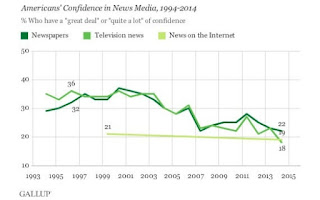Ethics Codes
Max Meyerson
mm603815@ohio.edu
Ethics and morality are two separate issues. Too often we as a society mix the two terms up. Ethics involves a process of decision making during a high pressure situation. Morality is the inner humanity you have and what your conscious says to you in those tight pressure moments. Sometimes the answer ends up being the same, but often they are not the same.
Even some ethical codes are different from other ethical codes. In our last class we talked about all different kinds of ethical codes. including, SPJ Ethics Code, RTNDA Ethics Code, ASNE Ethics Code, NPPA Ethics Code, AAF Ethics Code, PRSA Ethics Code, and ONA Ethics Code. All of these very complex codes have their own unique spin on what to do in these pressure situations.
https://www.spj.org/ethicscode.asp
The SPJ otherwise known as the Society of Professional Journalists ethics code is broken down into four different sections and they go as follows:
Rule number one is seek truth and report it. This rule comes with many check points to go over before a journalists can be comfortable reporting on a specific issue. Some of these check points include, Take responsibility for your work, Provide context for the situation, Identify sources clearly, seek the subjects of news stories to allow them to reach out and refute any claim made against them. Also, support the open debate of society, provide access to source material, and of course never plagiarize. These are just some of the rules that go along with rule number one.
Rule number two is to minimize harm. This is a tricky subject because sometimes minimizing harm means not telling the whole truth. This does not mean lying or making up a story, it simply means withholding information that may jeopardize the safety of a citizen or multiple citizens. This requires them to balance the potential harm against the public's need for information. Consider that anyone who has a story published about them deserves the right to a fair trial and a right to privacy regarding the issue being reported.
The third rule is to act independently. This means journalist should avoid conflicts of interest and refuse gifts and favors in exchange to withhold important information. Finally the fourth rule is to be accountable and transparent. This includes, explaining your ethical choices, respond quickly to questions about fairness and ethics, acknowledge mistakes and work to correct them, expose unethical conduct in journalism and finally abide by the same standards as others.
Overall I think all these different ethical codes have some true value to journalists. They each have some part that is linked to all the others, it is only minor details that truly separate them.
mm603815@ohio.edu
Ethics and morality are two separate issues. Too often we as a society mix the two terms up. Ethics involves a process of decision making during a high pressure situation. Morality is the inner humanity you have and what your conscious says to you in those tight pressure moments. Sometimes the answer ends up being the same, but often they are not the same.
https://www.spj.org/ethicscode.asp
The SPJ otherwise known as the Society of Professional Journalists ethics code is broken down into four different sections and they go as follows:
Rule number one is seek truth and report it. This rule comes with many check points to go over before a journalists can be comfortable reporting on a specific issue. Some of these check points include, Take responsibility for your work, Provide context for the situation, Identify sources clearly, seek the subjects of news stories to allow them to reach out and refute any claim made against them. Also, support the open debate of society, provide access to source material, and of course never plagiarize. These are just some of the rules that go along with rule number one.
Rule number two is to minimize harm. This is a tricky subject because sometimes minimizing harm means not telling the whole truth. This does not mean lying or making up a story, it simply means withholding information that may jeopardize the safety of a citizen or multiple citizens. This requires them to balance the potential harm against the public's need for information. Consider that anyone who has a story published about them deserves the right to a fair trial and a right to privacy regarding the issue being reported.
The third rule is to act independently. This means journalist should avoid conflicts of interest and refuse gifts and favors in exchange to withhold important information. Finally the fourth rule is to be accountable and transparent. This includes, explaining your ethical choices, respond quickly to questions about fairness and ethics, acknowledge mistakes and work to correct them, expose unethical conduct in journalism and finally abide by the same standards as others.
Overall I think all these different ethical codes have some true value to journalists. They each have some part that is linked to all the others, it is only minor details that truly separate them.



Comments
Post a Comment